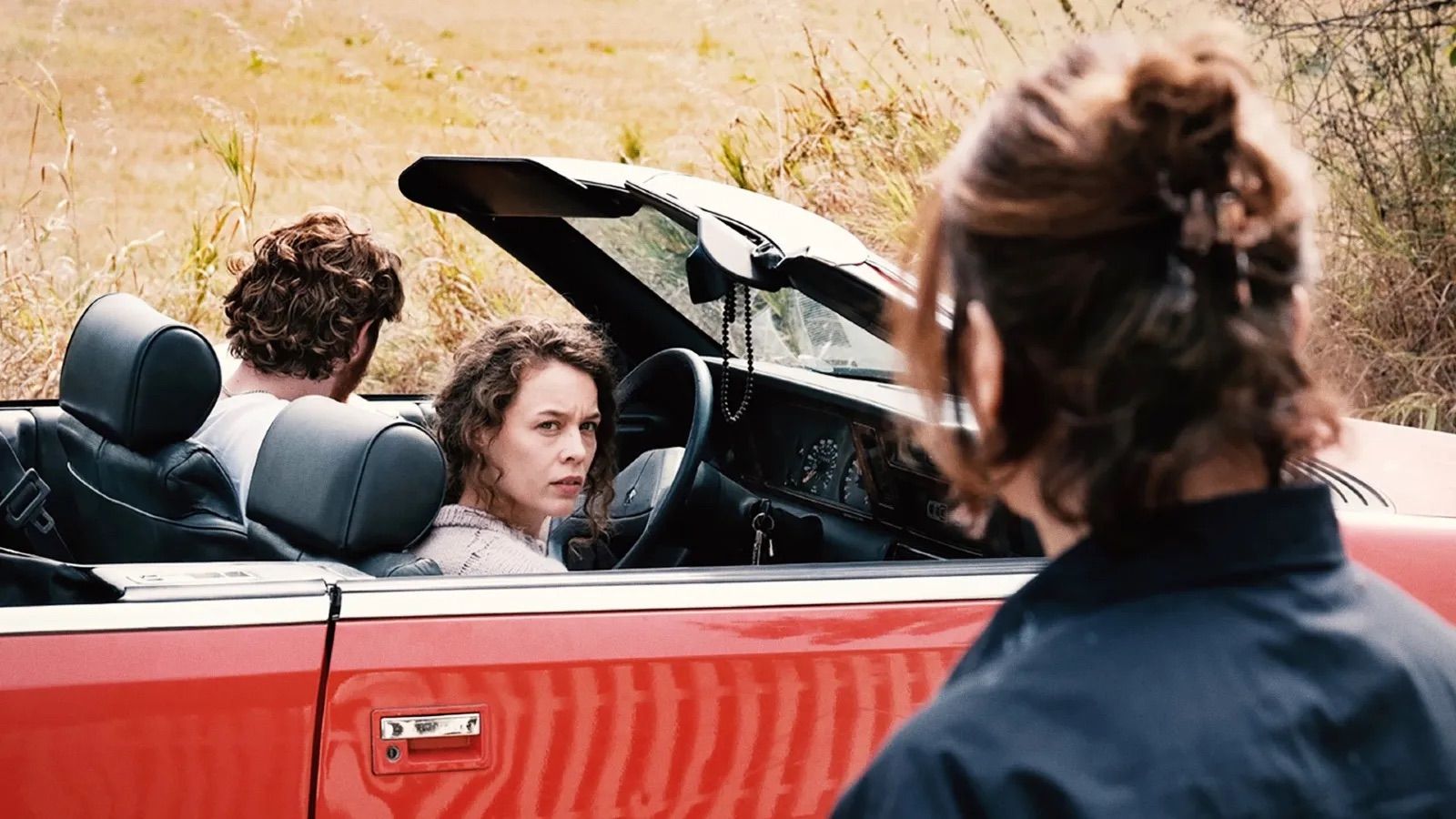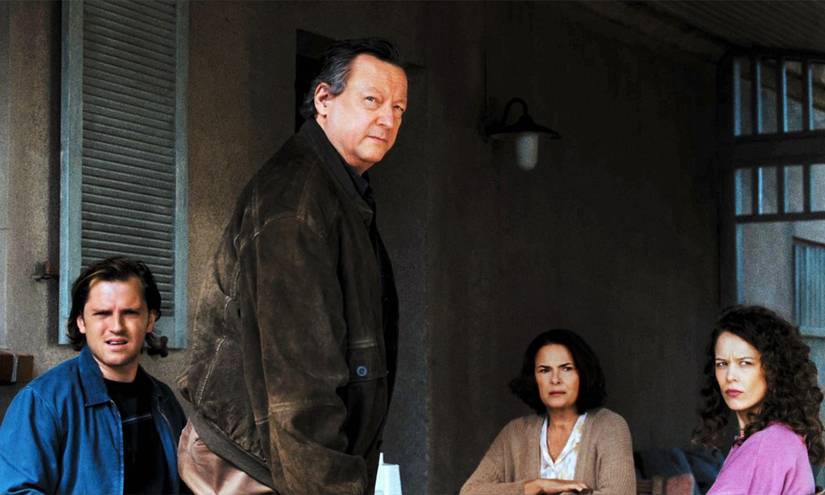
From the moment we meet Laura (Paula Beer), she appears lost and uncertain. Standing by the side of the highway, seemingly oblivious to the passing traffic, it’s immediately unclear what her purpose is or what she intends to do.
Christian Petzold’s latest film, and his fourth time working with Nina Hoss, is a gentle and insightful story about identity and longing. Laura is a somewhat lost character, easily mistaken for others and prone to being influenced by those around her. The film subtly hints at her struggles, including a possible contemplation of suicide, but never provides direct answers. A music student, Laura possesses a keen sensitivity but carries a noticeable sadness.
While driving to a weekend getaway with her boyfriend, Jakob, Laura unexpectedly locks eyes with a woman gardening by the roadside. For reasons she can’t explain, Laura insists they turn around and go home. On the drive back, they’re involved in a car accident just outside her house. Jakob is killed, and Laura escapes with only a minor injury.
Betty (Barbara Auer) welcomes Laura into her home and surprisingly offers her a place to stay while she recovers. Although Laura doesn’t appear to be hurt, she happily accepts, enjoying coffee, pastries, and the clothes Betty provides at her cozy country house.

Auer portrays Betty with a deep sadness in her eyes, and she and Petzold skillfully convey a strong sense of loss without explicitly stating it. There’s a fleeting moment where Betty accidentally calls Laura by the name “Yelena” before quickly correcting herself. The identity of Yelena is largely unknown throughout the film, and Laura respectfully avoids asking about her.
Laura seems to have taken Yelena’s place. Betty and her husband, Richard – a car mechanic involved in some minor illegal dealings with their son, Max – welcome Laura into their home, but they’re also very cautious and anxious, almost afraid of upsetting her.
Over nine days, Laura becomes deeply involved in this family’s life, and her presence seems to help them heal. Betty and Richard begin spending more quality time together, even picking plums to bake a cake, while Max starts to show a softer, more gentle side, revealing his love for music.
Miroirs No. 3 Continues Petzold’s Predilection For The Unspeakable Bonds Between Strangers
Petzold uses the house itself to represent the family, and everything falling apart within it mirrors the family’s own issues. A broken piano, leaky faucet, and malfunctioning appliances – these were all things Betty had simply gotten used to. But when Laura arrives, it’s as if a new energy breathes life into everything, forcing a reevaluation of the neglected state of their home and, by extension, their family.
As a film lover, I found Miroirs No. 3 to be a really beautiful and gentle movie. It’s got this lovely, almost magical quality, and it’s centered around the idea of falling for someone you barely know. The film feels as warm and inviting as the grandmother character at its heart, slowly revealing its more difficult truths. Even when things get complicated for Laura and she’s facing a strange situation, the characters are fascinatingly self-involved, but in a way that’s charming and never feels mean-spirited or shocking.
In a particularly moving conclusion, Petzold demonstrates the incredible power of art to connect us. The film shows how bonds can form across distances, through different eras, and even beyond life itself, allowing us to see people in new and imaginative ways.
Read More
- All Golden Ball Locations in Yakuza Kiwami 3 & Dark Ties
- NBA 2K26 Season 5 Adds College Themed Content
- Hollywood is using “bounty hunters” to track AI companies misusing IP
- What time is the Single’s Inferno Season 5 reunion on Netflix?
- All Itzaland Animal Locations in Infinity Nikki
- Elder Scrolls 6 Has to Overcome an RPG Problem That Bethesda Has Made With Recent Games
- Heated Rivalry Adapts the Book’s Sex Scenes Beat by Beat
- EUR INR PREDICTION
- BREAKING: Paramount Counters Netflix With $108B Hostile Takeover Bid for Warner Bros. Discovery
- Peeniss Is Coming
2025-10-28 23:58